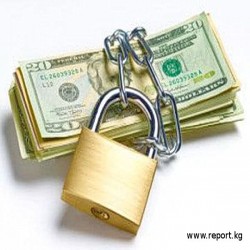Analytics
The best Experts' Views, Marks and Forecasts on Economics >>
Rules of Entry and Participation. Become a Member of Professional Society of Economic Journalists! >>

Thursday, May 26, 2011
Source: Yahoo! Finance
Retirement planning almost always seems to focus on "the number." Usually that's the amount of money somebody thinks you need to retire securely.
But here is the real number to watch: $25 trillion. That is a rough (and conservative) approximation of the amount of wealth controlled by the baby-boom generation, based on Federal Reserve Board data.
In the next five years, some $2 trillion will roll over into personal individual retirement accounts, reckons FRC Research Corp. That is a lot of money — and every corner of the financial services business wants a piece of it.
Some people fear workers will take that money and blow it on early retirement expenses, leaving themselves with nothing for their later years. The financial services companies that manage all of those retirement savings have a different sort of worry: They see a big pile of assets slipping away.
The realization that the boomer behemoth is going to start cashing out soon, coupled with the new appreciation for risk that followed the market crash of 2008-2009, has caused a shift in the way experts are now talking about retirement, and especially about 401(k)s and other defined contribution retirement accounts.
"What's the purpose of saving for retirement? Is it security or wealth building?" asks Steven Kreisberg, director of collective bargaining for the American Federation of State, County and Municipal Employees. "We've always viewed our pensions as old age insurance; it's not supposed to be a wealth producing vehicle for handing down wealth from one generation to another."
But workers holding sizable assets in their retirement accounts may not agree.
Kreisberg favors the traditional defined pension plans which paid workers a regular amount monthly for as long as they lived. Now financial services companies are introducing new products aimed at making defined contribution plans behave more like those pensions, at least during the withdrawal years.
Companies including Morningstar, Financial Engines and Guided Choice have rolled out products designed to help 401(k) savers keep their funds in those accounts after they retire. They use different investment approaches to manage the accounts while allowing regular monthly withdrawals.
Mutual fund powerhouses including Fidelity Investments and Vanguard investments have created automatic payout mutual funds especially designed for rollover money.
And insurance companies are pitching immediate annuities at employers, in the hopes employers might offer them to retiring workers within their 401(k) accounts.
This is a transitional phase, for sure. Here are some thoughts for future retirees.
• Washington will probably get involved. The Obama Administration has expressed interest in the idea of offering employers some kind of 'safe harbor' for agreeing to keep retirees' money in their 401(k) accounts. For example, employers could offer a low-fee annuity or other investment management approaches that would make it attractive for employees to keep money there. Why would employers want to do that? It could indemnify them from lawsuits from retirees who stay in the plan and then lose money, or save them from having to offer early retirement packages to would-be retirees who cannot afford to leave.
That is the same kind of thinking that created automatic enrollment rules in which workers can be put into target-date mutual funds during their accumulation years. But a federal program like that governing 401(k) withdrawals is probably years off, experts suggest.
• We want it all. Workers want to take their lump sums and have guaranteed lifetime benefits, says David Speier of benefits consultant Towers Watson. "We get real mixed messages." Workers surveyed by his firm want to retain control over their money, though older workers say they're willing to sacrifice more from their paychecks for a guaranteed lifetime benefit. A compromise? Perhaps someday employers will put their matching contributions directly into annuities or some other payout plans.
• Fees will really matter. Some employees have been spending too much of their retirement money on fees hidden in their 401(k) accounts, and it would be a bad idea to extend the overpriced, hidden-fee traps into the retirement years. On the other hand, employer-sponsored retirement plans have the bulk buying power that individuals do not have. They could end up offering cheaper, better annuities and payout plans than individual retirees could find on their own. Starting in 2012, Labor Department rules will require the clear disclosure of all 401(k) fees.
• Monthly payouts may not be the right answer. "People's needs in retirement are much more nuanced than a monthly paycheck," says Matt Schott, head of the retirement income practice at FRC Research. Retirees tend to spend money in a different, and less regular, rhythm than that of workers. They also tend to spend less as they age. Schott also points out that most retirees do not even start drawing down their tax-deferred accounts until they are required to at age 70-1/2. If that pattern continues for the baby boom, that could provide a really big number in about 15 years.